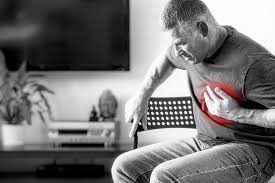
Warning Signs

Warning Signs for Stroke
Sudden weakness or Numbness of face:
Sudden numbness or weakness of face, arm or leg, especially on the one side of the body.
Trouble in Speaking & Understanding:
Sudden confusion, trouble speaking or understanding
Trouble in seeing with one or both eyes:
Sudden vision changes, such as double vision or blindness in one eye.
Arm Weakness:
Weakness in one arm, such as not being able to raise both arms.
Trouble in Walking and Dizziness
Sudden trouble walking, dizziness, and/or loss of balance.
Some other Signs are:
limb on one side, Severe Headache.
Warning Signs for Heart Attack
Chest Discomfort:
If you have a blocked artery or are having a heart attack, you may feel pain, tightness, or pressure in your chest.
Indigestion, Nausea, & Vomiting:
Some people have these symptoms during a heart attack. They may even vomit. Women are more likely to report this type of symptom than men are. You can have an upset stomach for many reasons that have nothing to do with your heart.
Pain that Spreads to the Arm:
Another symptom of heart attack is pain that radiates down the left side of the body. It almost always starts from the chest and moves outward.
Sweating-Day & Night:
Sweating more than usual especially if you aren't exercising or being active could be an early warning sign of heart problems. Pumping blood through clogged arteries takes more effort from your heart, so your body will sweat more to try to keep your body temperature down during the extra exertion.
Some other signs are:
Fatigue & Shortness of Breath, Upper body discomfort, shoulder pain, Dizzy spells, Weakness or fainting and Swelling or pain in your legs.
Other warning signs of Heart Diseases:
Chest Pain:
Chest pain is discomfort or pain that you feel along the front of your body, between your neck and upper abdomen. There are many causes of chest pain that have nothing to do with your heart. But chest pain is still the most common symptom of poor blood flow to the heart or a heart attack. This type of chest pain is called angina. Chest pain can occur when the heart is not getting enough blood or oxygen. The amount and type of pain can vary from person to person. The intensity of the pain does not always relate to how severe the problem is.
Shortness of Breath
When the heart can not pump blood as well as it should, blood backs up in the veins that go from the lungs to the heart. Fluid leaks into the lungs and causes shortness of breath. This is a symptom of heart failure.
Coughing or Wheezing
Coughing or wheezing that does not go away can be another sign that fluid is building up in your lungs. You may also cough up mucus that is pink or bloody.
Swelling in the Legs, Ankles, or Feet
Swelling (edema) in your lower legs is another sign of a heart problem. When your heart doesn't work as well, blood flow slows and backs up in the veins in your stomach or notice some weight gain.
Fatigue
Tiredness can have many causes. Often it simply means that you need more rest. But feeling run down can be a sign of a more serious problem.


